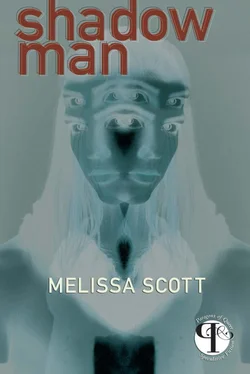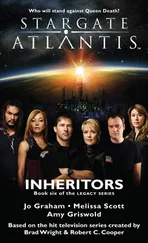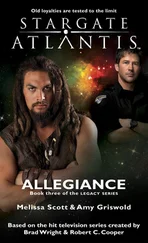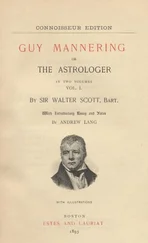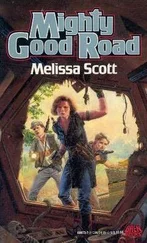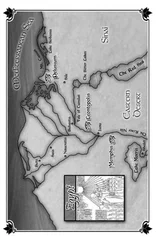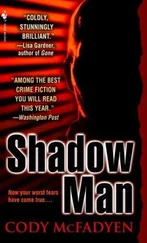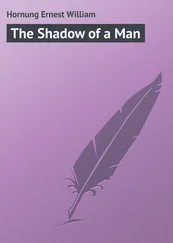From most other Harans, Tatian thought, regarding the other man with detached dislike that would be mere forgetfulness, an inappropriate courtesy that he wouldn’t mind declining. But from Wiidfare, it was always a challenge. “I’m fine, thanks,” he said, and met Wiidfare’s ill-concealed sneer with a bland smile.
“Surely a little sweetrum-and-water won’t hurt.”
The voice was unfamiliar, but the face was not. Tatian nodded warily to Temelathe’s son, said, “Mir Tendlathe.”
Tendlathe lifted a hand, summoning one of the hovering faitou s. He was a slender man, willowy where his father was solid, and Tatian had to make an effort not to glance down, looking for a herm’s breasts and hips. In any case, Tendlathe wore a narrow, neatly trimmed beard and moustache: it wasn’t an infallible indicator, but it was a sure guarantee of legal gender. A bonne-faitou came scurrying, ironwood tray held at waist height, and Tendlathe gestured expansively. “Do try some, ser Mhyre, I think you’ll find it to your liking.”
“Since you insist,” Tatian said, in his most colorless voice, and lifted the jug that stood in the center of the tray. He sniffed it—odorless, and probably just water, though one could never be entirely sure on Hara—and then added it to one of the glasses, cutting the sweetrum even more. He set the jug back, murmuring his thanks to the bonne , and smiled at Tendlathe. “Your health, mir.”
The Haran tipped his head in graceful acknowledgment. Tatian sipped carefully, barely letting the liquor past his lips, and was glad to see that Tendlathe, at least, had told the truth. With the additional water, the sweetrum was tolerable even to an off-world metabolism.
He looked away from Tendlathe and Wiidfare, back out over the crowds filling the Glassmarket. He had been unable to pick out Warreven among the candidates presented; there had been several people, all passable men, who wore their hair loose and ragged as Warreven had done, and it had been impossible to recognize anyone’s face at this distance. The speeches—which had been inaudible, anyway—seemed to be over now, and the action was divided between the tables where the food was served and the side platform where the band was playing. Just the drums were audible, their rhythm vying with the inchoate noise of a thousand voices.
“Impressive, isn’t it, mir?” Tendlathe said.
Tatian made a noncommittal noise, a Haran proverb dancing in his brain: never praise Stane to Stiller, or Stiller to Stane .
“It’s nothing to Gedesrede, of course,” Wiidfare said, “but it’s nice enough.”
“I’ve heard quite a lot about the Gedesrede baanket ,” Tatian said. He judged it was time to establish some sort of common ground. “Our—NAPD’s—chief botanist is a Stane.”
“I assume she’s on her way home now, then,” Wiidfare said.
Tendlathe said, as if he hadn’t spoken, “Which mesnie ?”
“Riversedge,” Tatian answered. “And yes, Mir Wiidfare, she and Mats are heading up there in the next few days.”
Wiidfare started to sneer, but Tendlathe silenced him with a quick look. “That makes us kin,” he said, and grinned at Tatian’s quickly suppressed look of disbelief. “Closer than just Stane and Stane, I mean. My mother was from Riversedge, and I was practically fostered there. What’s her name? I’ll have to look for her.”
“Derebought Stane.” There was no point in using her compound name, Stane-Lanhos; Harans didn’t recognize the form—one more thing they didn’t admit to—and the reminder of her off-world marriage might undo all the good this conversation had done.
“Derebought,” Tendlathe repeated. “I’ll certainly look for her.”
Tatian nodded, not knowing quite what to say, not sure why Tendlathe was going out of his way to speak to him, and glanced out over the Glassmarket again. Something was moving on the fringes of the crowd, by the band platforms. He frowned, trying to make out what was happening, and saw movement among the drummers on the platform. Someone—the figure was totally indistinct at this distance—climbed or was lifted up to join them. There was a moment of confusion, and then the newcomer lifted a bright white-and-yellow disk drum over his or her head, began beating out a new, insistent rhythm. A banner rose at the back of the platform, nearly toppling a drummer, and unfolded on multiple supports to reveal painted shapes maybe twice life size. Tatian squinted at them, trying to read their elliptical message—they looked like yet more representations of the ubiquitous spirits, the interpreters to humans of Hara’s distant God—and heard Wiidfare mutter something.
“—fucking Modernists.”
Tatian glanced over his shoulder, startled by the vehemence of his tone, and saw Tendlathe’s hand close on the other indigene’s arm. His expression didn’t change, handsome face still smiling faintly, but Wiidfare winced, and Tatian saw Tendlathe’s knuckles pale as his grip tightened further.
“This is Bonemarche,” he said, and his voice sounded strangely tight, only a ghost of its earlier ease remaining. “Things are different in the mesnie s. They wouldn’t stand for this there.”
Tatian looked back toward the banner, now fully opened, five figures— not the spirits after all , he thought, but more like caricatures of the five sexes, a Concord motif given a new, uniquely Haran shape —stood hand-in-hand against a stylized background of sea and sky. More figures, most in traditional dress, a couple in dull gray that might have been meant to stand for off-worlders, posed in front of the banner, but he was too far away to understand their mime. Uniformed mosstaas started to shove their way into the crowd, but the Stillers blocked their way: the protesters had chosen their moment well. He heard a laugh behind him, hearty, and sounding genuinely amused.
“They’ve got heart, the Stillers,” Temelathe said, “and brains. Not a milligram of common sense in the entire clan, but kilograms of brains.” He edged out on the balcony, distance glasses in hand, and the other Stanes scrambled to give him room. Tatian found himself pushed back against the doorway, the edge of the bricks digging painfully into his spine.
“It shouldn’t be allowed, my father,” Tendlathe said. He was still smiling, as though he’d forgotten to let his lips move; the expression looked ghastly against his sudden pallor, brown skin drained of blood. “It’s disrespectful to you, and to Stane. The mosstaas —”
Temelathe laughed again, as though his son had never spoken. “God and the spirits, that’s clever. And the one doing me’s very good.” He lowered the glasses, looked behind him, shrewd eyes—eyes that weren’t laughing at all, Tatian noticed—sweeping across the mixed crowd of Stanes and Maychilders and off-worlders. “Take a look, ser Mhyre, it’s almost a shame you’re missing the performance. Not that we aren’t delighted to have you here, of course.”
He thrust the glasses almost into Tatian’s face, and the younger man took them mechanically. He couldn’t refuse; it was less an offer than an order, and he thumbed the tuning wheel, buying the seconds he needed to get his own expression under control. Any pharmaceutical, any off-worlder, would have done anything for this display of Temelathe’s magnanimity, he thought. Why the hell did it have to be me? He raised the glasses, focusing the double lenses on the banner, and the scene beneath it leaped into sharp focus. A group dressed as men and women, though their bodies very obviously didn’t match their clothes, clustered in the center, watched by the two “off-worlders.” A man in overdone jewelry—and he was obviously meant to be Temelathe, from the padded shoulders and chest and coarse black and gray wig to the tricks of stance and gesture—was sorting the people in traditional clothes into pairs, matching “male” to “female” regardless of real gender or the mimed wishes of the people. Before he’d finished sorting, however, one of the “off-worlders” tapped him on the shoulder, pointed to a “man” who had been padded to resemble a herm. “Temelathe” shook his head, and the “off-worlder” offered something that looked like a purse. “Temelathe” took it, nodding vigorously, and shoved the “herm” toward the “off-worlder.” It was the most blatant representation of trade, and Temelathe’s connections to trade, that Tatian had ever seen on Hara.
Читать дальше
